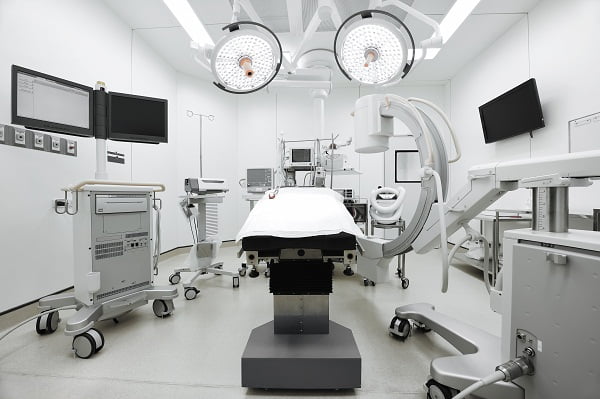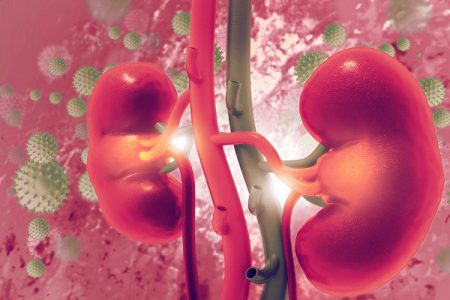Nephrectomy for Kidney Cancer Patients
- Updated on: Jul 8, 2024
- 3 min Read
- Published on Apr 20, 2021

What is Nephrectomy?
Nephrectomy is a major surgical procedure to remove entire or a portion of the kidney.
The kidneys are two bean-shaped small organs in the abdomen. They help filter water and waste products from the blood. They also produce certain hormones. Read about kidneys.
What are the reasons for kidney removal?
Most often a nephrectomy procedure is done to treat kidney cancer or to remove a non-cancerous (benign) tumor of kidney.
In some other cases, a nephrectomy is performed to treat a diseased or damaged kidney. Some of the other reasons for kidney removal are:
- When your kidney is damaged
- You are donating a kidney
- Your kidney is not functioning properly due to some disease such as chronic kidney disease.
Kidney removal surgery (nephrectomy) for kidney cancer treatment
A urologic surgeon performs nephrectomy to remove a cancerous tumor or abnormal growth tissues in a kidney. The most common kidney cancer in adults is renal cell carcinoma.
Kidney cancers are not common in children. Children are more likely to develop a type of kidney cancer called Wilms’ tumor. This may be caused due to poor development of kidney cells in children.
Your doctor will make a decision about how much kidney (entire or a portion of it) tissue should be removed to treat the cancer. It depends on several factors such as listed here:
- Whether the kidney tumor is confined within the kidney or has spread beyond?
- How is the other kidney functioning?
- Whether there is one or more than one tumor?
- How is your overall kidney function?
- How much of your kidney is affected by the cancer?
- Are nearby tissues affected?
What Are the Types of Kidney Removal Surgery?
There are many different types of nephrectomy surgery.
Simple Nephrectomy
In a simple nephrectomy, your entire kidney is removed. A cut is made of about 10 inches long in your side. The surgeon will cut away your kidney’s blood vessels and its connections to the bladder. The entire kidney is then removed from the body. Sometimes, a rib may have to be removed to reach to the kidney.
Partial Nephrectomy
In a partial nephrectomy procedure (also called kidney-sparing or nephron-sparing surgery), your surgeon will remove the diseased tissue from the kidney and leave healthy tissue as such.
The procedure is almost similar to a simple nephrectomy. However, this may require a smaller incision.
Laparoscopic Surgery
This procedure can be employed to perform either a simple nephrectomy or a partial nephrectomy. In a laparoscopic technique, the surgeon will make several smaller incisions in the abdomen instead of one big incision.
The surgeon will insert small instruments through these incisions along with a camera fitted on an instrument. This will allow the surgeon to see what’s happening inside the abdomen while removing the kidney.
This type of surgery is generally less painful than an open surgery. The recovery time is shorter and you are allowed to go back home earlier.
What Are the Risks of Kidney Removal? How serious is removal of a kidney?
Removing all or a part of a kidney is a serious procedure, and it is considered when no other option exists as a last resort. Complications may occur, though they are rare. Some of the risks associated with nephrectomy are:
- loss of blood (bleeding)
- an injury to tissues around the kidney
- an injury to other organs
- a hernia in which case organs may bulge out of the surgical incisions
- stroke
- heart attack
- allergic reaction to anesthesia
- infection
- the formation of a blood clot in your legs
- breathing problems
- problems with the remaining kidney after the surgery
There are some problems that may occur with long-term reduced kidney function. These may include such as:
- High blood pressure (hypertension)
- Chronic kidney disease
How painful is kidney removal surgery?
The surgery is done in the hospital. You are fully asleep as the surgery is done. The procedure is pain-free (under general anesthesia).
Kidney removal procedure can take 3 or more hours.
If you are operated through a laparoscopic technique, it will take longer than an open kidney removal surgery. However, most people report fast recovery and feel less pain after this method of surgery when compared to the pain and recovery after going through a conventional open surgery.












